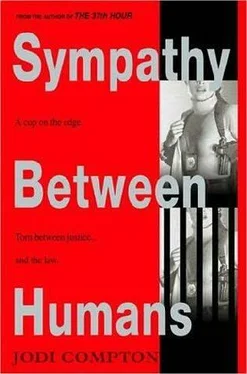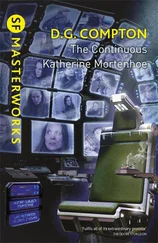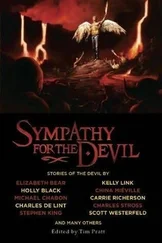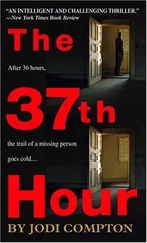“You were saying?” Diaz prompted.
I didn’t answer right away. This man was playing a game, and while I should have known better, I’d started playing it with him. “Have you spoken to Shiloh yet, at the prison?” I asked.
Diaz said, “I’m not prepared to share all the details of the investigation right now.”
“You haven’t,” I said, “because Shiloh isn’t your person of interest. I am. You’re deflecting my attention by pretending that Shiloh is your suspect. You want me to jump to his defense and argue the points of the case with you, until I give up some detail I couldn’t have known unless I killed Shorty.” That had been Stewart’s nickname, codified on the vanity license plate of his car. “That’s the second detail you left out of your story. You left out any reference to me being in the area and talking to Stewart the night he died. If you talked to the people at the bar, you know I was there,” I said. “That makes me an obvious suspect. But instead of approaching me directly, you’re pretending you want to talk to me as a ‘fellow investigator.’ ”
This was a tactic that even worked on street criminals. When talking to a suspect with priors, sometimes detectives will ask him to speculate on how a crime might have been carried out, what he might have done if he had committed the act. If it works, the criminal will drop his guard and spill a critical detail that he shouldn’t have known.
“Let me answer the question you’re not asking,” I said. “I did not kill Royce Stewart. I was down there, in Blue Earth. I was at the bar. I spoke to him. But I didn’t kill him.”
“Detective Pribek,” Diaz said, “I’m not here to offend you. I’m here to do a job.”
He was right; I’d spoken more freely than I’d intended. The pain in my ear was fraying my nerves.
“I’m sorry,” I said. “I know that. I’ve had a cold, and my ear is really bothering me. Can you give me a minute to get some aspirin?”
“Actually,” Diaz said, “I’d like us to keep going with this now that we’re on a roll.”
Another key point in interrogation: once things start heating up, don’t give your suspect time to regroup.
“Let’s talk about the night you went to Blue Earth,” Diaz said. “What led you to go there?”
“I had come to understand that Shiloh had stolen and wrecked the truck on the highway. I recognized his motives, that he wanted to run Shorty down, but I knew he’d failed, because Royce Stewart was alive. In fact, Stewart was the suspect in the theft of the truck, because his fingerprints placed him at the scene of the accident. What I didn’t understand was what happened to Shiloh after the wreck.”
“So you went down there.”
“To talk to Shorty, yes.” My ear was pulsing steadily with my heartbeat, which was going a little faster than usual.
“How did you know he would be at the bar?” Diaz asked.
“I didn’t know for- Ow! God. ”
Now it had done something new. There had been a popping sensation, followed by a crackle of something like static. I’d heard people talk about their ears popping during the ascent and descent of airplanes, but I didn’t think this was the same thing. Instead I imagined blisters had risen on my eardrum like bubbles, and one of them bursting.
“Your ear?” Diaz asked.
“Yeah,” I said, rubbing the outer shell ineffectually.
“We’ll try to wrap this up fairly quickly,” Diaz assured me. “You were saying?”
“I was saying that I didn’t know for sure he’d be at the bar, but I’d heard he spent a lot of time there.”
“And luckily for you, he was,” Diaz commented. “What did you discuss with him?”
“I wanted to know what he knew about Shiloh ’s disappearance,” I said. “He refused to talk to me.”
“And then what did you do?” Diaz asked.
“I drove partway home,” I said. “My partner, Genevieve, was living in Mankato with her sister and brother-in-law, and I knew I could sleep there.”
In second grade we’d studied the ear. I tried not to remember the illustration of the eardrum, tried not to imagine my own as a swollen, dark-pink balloon of fluid, getting more distended by the hour.
“You didn’t go to Stewart’s house before you left Blue Earth?”
This was a potential trap. So far I’d been telling the truth, albeit with omissions. I hadn’t needed to lie. This was where I had to step off the trail.
“No,” I said. “I didn’t.”
“ Minneapolis to Blue Earth is nearly a three-hour drive,” Diaz said. “So you drove all that way, found Stewart at the bar, and when he refused to talk about your husband, you just got back in the car and left? Seems to me like you gave up kind of easily.”
My ear crackled again, making a rushing noise like static. “Shorty told me he knew, and I quote, ‘jack shit.’ I couldn’t prove otherwise. There wasn’t a lot I could do after that.”
“So that’s your story: you drove to Blue Earth, saw Shorty briefly at the bar, and drove to Mankato?” Diaz said.
“That’s what happened,” I said.
Most of what I had told Diaz was true. The lie was one of omission. I’d left out Genevieve, who’d followed me to Blue Earth, coming and going unseen like a malevolent shadow.
Diaz shook his head, as though disappointed in a pupil who isn’t performing up to par. He shuffled papers back into his manila file. “I suppose that’s all, for now.”
When I stood, a red-gray haze swam up in my vision and my ear throbbed a little harder.
“Oh, I forgot one thing,” Diaz said. “Is there any reason why someone would have seen you and your car outside Stewart’s home on the night in question?” Diaz asked.
I was still standing motionless, trying to get my vision to clear. Diaz’s question did not help. Get a grip. Breathe.
“I’m not the only person who looks like me or drives a 1970 Nova,” I said.
The reddish haze receded and the colors of the world broke through again.
“I see,” Diaz said. “Thank you for your help, Detective Pribek.”
***
It’s an investigator’sclassic, the is-there-any-reason question. It implied there was an eyewitness, but didn’t actually claim it outright. The interview subject was supposed to fall into the trap and start making facile, blustering excuses, thus confirming what the investigator had only suspected.
Knowing it was a tactic didn’t stop it from being scary as hell. If Diaz had more evidence, he’d have come out with it, I told myself in the restroom, where I’d just downed two Advil and splashed cold water on my face, being careful not to get any in my ear.
When I lifted my head to see my reflection in the mirror, my pale face shone from sweat and water. The strands of hair closest to my face were damp. Other than my work clothes and shoulder holster, I looked like a nineteenth-century consumptive in a charity-hospital ward. I stared at my own image and came to grips with the worst realization I’d had all day: I needed to visit a doctor’s office.
***
Aviation expertswill tell you that you’re safer in the air than you are on the ground. Statistics confirm this. But in any airport lounge you’ll see some poor soul sitting in one of the plastic chairs, elbows on knees, hands hanging loose, feet planted, head down. It’s a nearly prayerful position, as though he or she is about to do the most dangerous thing imaginable. And in the mind of an aerophobe, they are.
Phobias are like that. It doesn’t matter that the fear is irrational. Sometimes the mind’s danger instinct just kicks in for no reason, and it won’t shut off in the face of comforting statistics or personal affirmations. For me, the equivalent of an airport lounge is the waiting room of a doctor’s office. At five minutes before 5 P.M., I went into a walk-in medical clinic, checked in, and assumed the position. My limbs felt heavy and strengthless, like I had water in my fuel line. To my left, a heavyset man in workman’s clothes, a paint-speckled cell phone at his hip, watched traffic through the window.
Читать дальше












